TRANSCRIPT:
McFaul: You’re listening to World Class from the Freeman Spogli Institute for International Studies at Stanford University. We bring you in-depth expertise on international affairs from Stanford's campus straight to you.
February 24th marks the third anniversary of Russia's full-scale invasion of Ukraine. It's a horrific, tragic day. There's a lot of uncertainty right now in Ukraine and among its friends and allies about what the future is going to bring.
There's a lot of pressure right now on President Zelenskyy to negotiate. There’ a lot of concern in Europe over what might happen over the negotiations between the United States and Russia, something that has not happened in three years, and a lot of unanswered questions more generally about America's future leadership in the world and especially in Europe.
And so we could not be luckier than to have Steve Pifer, an affiliate with the Center for International Security and Cooperation and the Europe Center here at FSI to be with us today.
Steve not only is a former ambassador to Ukraine, but has spent three decades of his career in diplomacy working on European issues. And is one of the most prolific commentators. I have to say, Steve, it's hard to keep up with you and all your writing. Most people after they retire from the Foreign Service slow down. It seems like you are speeding up. But maybe that has to do with the events that are happening in Europe that require that.
So thanks for coming on our program today, Steve.
Pifer: Thanks for having me, Mike.
McFaul: So originally we were going to have a conversation to start with takeaways from the Munich Security Conference. But so much has happened since that event, which is literally only six days ago, by the way. The negotiations in Saudi Arabia, the trolling between President Trump and response to President Zelenskyy.
Steve, just start at some kind of basic assessment: where do we stand right now in terms of the alleged peace negotiations that have been started? And I'll let you characterize it in any way you want to. Take stock of where we are at right now.
Pifer: Well, Mike, let me just actually step back first and make a couple of observations.
One is: on February 24, 2022, I would not predict we would be having any kind of conversation like this.
McFaul: Great point.
Pifer: Nobody, virtually, expected the Ukrainians to last militarily. Had you asked me, I thought that the Russians would win the force-on-force fight. And then in 2025, what we would be seeing would be a very bloody insurgency by Ukrainians against Russian occupying forces.
McFaul: Right, right.
Pifer: So I think it's a real testament to the Ukrainian military, Ukrainian resilience, that the Ukrainian military is still very active in the field. Even last year in 2024, I have to say the Russians had the momentum. But in that period, over the entire year, they captured maybe 1,500 square miles of Ukrainian territory. That's less than 1% of Ukraine's land.
And they did that at enormous cost. At some points, they were losing 2,000 troops a day, dead and wounded. The British Ministry of Defense now estimates that more than 800,000 casualties on the Russian side. And I'm not saying that Ukraine is winning, but the idea that Russia is on the verge of a great victory, I think, is overblown.
McFaul: Great point to start with. I'm glad we started with that. And I share your assessment. I remember three years ago, I remember talking to you three years ago and the assessments we all had and here we are three years later and it hasn't happened.
Pifer: Yeah. And again, that's a credit to the Ukrainians.
You know, a lot's happened in the last two weeks. I have to say I am thoroughly disappointed in the efforts by the Trump administration to try to broker a solution and this unseemly rush to try to re-engage Vladimir Putin, which I think is a mistake.
I mean, if you look back, there have been, think, three or four wins for Putin in the last 10 days. One is you had Secretary Hegseth in Europe and then the president saying, “Well, Ukraine can't expect to hold onto its territory and Ukraine get into NATO.”
Now, whether or not that's realistic, why are senior officials and the American president saying that when we're going to try to broker a solution? We've already at the beginning made a big lean towards the Russian position.
Then you have President Trump calls Putin and announces he's going to have not one, but several meetings with Putin, breaking with a policy with the Western leaders for the last three years that you do not engage Putin.
The next day he says, let's bring Russia back into the G7 to make it the G8 again.
McFaul: Oh my goodness, I even forgot about that one!
Pifer: If you had a vote right now, I think Trump would lose six to one on that.
McFaul: But he did offer it, yes.
Pifer: And then Secretary Rubio goes to meet with Lavrov. So that looks like that's four pretty big wins for Russia. And I can't see a single thing that the United States has received in return.
And then I would just add, I mean, this unseemly haste to engage Putin, I think Putin looks at this and says, I'm dealing with somebody — Trump — who is very weak. I'm just going to sit back and wait for more concessions. I think they've gotten off to a very bad start that's going to make it much harder to achieve their goal if their goal is to try to broker a just and durable settlement between Russia and Ukraine.
McFaul: Steve, why do you think this is happening the way it is? Let's talk about Trump and then we'll talk about Putin and Zelenskyy separately, but how do you explain it?
Pifer: Trump going back for 10 years has this inexplicable affinity for Putin. You're very hard pressed in the last 10 years to find examples where Trump has criticized Putin or Putin's actions. That's hard to understand because Putin's committed a lot of actions in the last 10 years which deserve to be criticized.
Someone suggested maybe there's a grand chess strategy here. And the idea is perhaps to throw Ukraine under the bus and back away from Europe to peel or to basically cultivate Putin so you could somehow peel Russia away from China, given the administration's focus on China.
But I think that grossly misunderstands the depth of the relationship between Xi and Putin and how dependent Russia is on China now.
McFaul: Yeah.
Pifer: So if that's the objective, I think it's going to fail. But otherwise, if it's not by design, then it simply is incompetence or, as one Republican senator said — he's a bit more diplomatic saying — “rookie mistakes.”
McFaul: Let's just pull on this thread a little bit because first of all, he's not a rookie. He was president for four years. And second, it seems more by design, right?
It seems like he just wants to make a go at a peace treaty. He doesn't really care about the contours of it. Most certainly doesn't care about Ukraine. And then just walk away or is there a bigger deal that he's trying to get?
So one, as you pointed out, might be this China play. And I completely agree with your assessment; that is going to be a loser. If you're Vladimir Putin, you're going to break up the most important relationship you have in the world to take a gamble on President Trump, who then might not be in power in four years time?
Pifer: Exactly.
McFaul: So that makes no sense to me at all. But what about like, maybe there's some kind of economic deal that somehow Trump thinks getting closer to Putin might be good for the United States?
Pifer: Well, reportedly that when Secretary Rubio was in Saudi on the Russian delegation was this Russian oligarch who talked about, I think he said hundreds of billions of dollars that American businesses had lost by not being in Russia over the past three years.
McFaul: Yeah. By the way, his name is Kirill Dmitriev. I used to know him. Has a degree from Stanford and Harvard, by the way. Very savvy guy who runs their investment fund.
But that's a good point. He did say that, and the fact that he was on the delegation is kind of strange too, isn't it?
Pifer: It's very strange. But his numbers . . . I think he said $380 billion. He's talking about American companies lost the equivalent of 5% of Russia's gross domestic product over the last three years? That's a wildly inflated number. And I think he was also talking about oil and gas concessions.
Well, before the Trump administration gets too excited about oil and gas concessions in Russia, they ought to go back and talk to President George W. Bush and his energy people, because there was all this excitement back in 2002 and 2003 about energy cooperation and huge advantages for American companies, which never panned out.
If it's an economic deal we're talking about, I think we're pursuing some pretty false hopes.
First of all, American industry they don't find the business environment there very attractive and it's not been one of their goals over the last 25 years.
McFaul: So let's pivot to President Zelenskyy next and help us think through his options and his situation right now and what he has done and what he might do moving forward.
Pifer: Yeah, well, think, Zelenskyy, first of all, I mean, he's epitomized that resistance and that resilience of Ukrainians in ways that . . . in fact, I think we had a conversation back in January of 2022 with some other Stanford scholars. And the question was, well, if the Russians invade, what kind of a wartime president would Zelenskyy be?
McFaul: Right.
Pifer: And I think we were uncertain. Well, I think Zelenskyy's proven that he was exactly what Ukraine needed at that very difficult time.
But I think you have seen growing war weariness within Ukraine. Polls now suggest that a majority of Ukrainians want negotiations, although we still have a sizable segment of the population that oppose any territorial concessions.
Zelenskyy seemed to show, I think, a bit of flexibility at the end of 2024, where he said, look, we could be prepared in a negotiation to agree that we would not use military means to recover lost territory. We would pursue diplomatic routes.
Now, he tied it to NATO membership for Ukraine. And I think what he's basically saying, If I'm going to give up, temporarily or perhaps longer, Ukrainian land, I need to have a firm security guarantee for the rest of Ukraine.
What he doesn't want to do is broker a deal with Vladimir Putin now, give Putin three or four years to regenerate his military, and then have another invasion to deal with. He's looking for solid security guarantees to prevent that.
And that, to my mind, is as the Trump administration tries to broker the settlement, any settlement is going to be judged on those two factors. One, how much territory remains under Russian control, even if just temporarily. And then two, what kind of security guarantees does Ukraine receive and how solid are they?
McFaul: Those are tough decisions, right? Because he's not getting much of a signal from the American side, at least so far, of anything substantive on the security guarantees. At least not that I've been able to see.
Pifer: No, And when Secretary Hegseth was in Europe 10 days ago, what he talked about was Europe providing either a peacekeeping force or a security force that would be on the ground in Ukraine. But he said there would be no American contribution to that.
And then he went a step further and he said that force would not deploy as a NATO force; it would be outside of NATO and it would not have the coverage of Article 5.
I worry about that because that seems to be a usually tempting opportunity for Vladimir Putin. So say you have 25 or 30,000 Europeans there not as NATO, but there to basically provide that security guarantee. That'd be an opportunity or tempting opportunity for Putin: Well, what if I hit that force? What if I had a pretext? They got too close to the Russian border or they were cooperating too much with the Ukrainians. They're no longer a neutral force.
It wouldn't have to be a big strike. But you kill a few members of this force and there's no then American response. That's going to be a pretty shattering blow to NATO. And I think Putin would be tempted on that.
So, I worry about what they're thinking in terms of how they do involve the Europeans. And I worry that they haven't thought through just how risky that could be ultimately for the underlying NATO relationship, which I still believe is very much in the American security interest.
McFaul: I'm going to get to NATO in a second, but one more question on Zelensky's position and just say parenthetically, that's a very profound thought. I haven't heard anybody talk about the scary scenario that you just laid out.
But let me come back to that in a minute. One more question about Zelenskyy and their government. As you know, and our listeners probably know, there was a floated document that the United States, the Trump administration, gave to President Zelenskyy, first in Kyiv, and then later it was presented and discussed at some detail at the Munich Security Conference when Vice President Vance and President Zelenskyy met.
And to the best of my understanding — maybe you have seen the document by now, I haven't — but I've talked to officials about it. It's a 50% sharing of the profits of all future critical minerals to be mined in Ukraine. Pretty amazing, outlandish, colonial document. And what's mysterious to me is what the Ukrainians get in return.
Having said all that, it's very clear that President Trump thinks this is an important document to be signed. What should President Zelenskyy do?
Pifer: Well, I think he was correct in not signing the document he was given, which as I understand it, it was basically giving America access to perhaps $500 billion worth of rare earth minerals and other minerals in Ukraine as a payment for what the United States had done for Ukraine in the past.
McFaul: So it was for the past, right? See, this is a very important point. Not future?
Pifer: And Trump has this incredibly inflated idea. He thinks that the United States in the past three years has provided Ukraine $350 billion. It's more like $120 billion, which is, not saying that's not a lot of money. But the bulk of that money was actually spent in the United States buying weapons for either the Ukrainian military or buying modern weapons for the U.S. military to replace things — older weapons — they had pulled out of their stocks to send to Ukraine.
And I would argue that that's not a gift to Ukraine; that's also in the American national security interest.
McFaul: Very important point.
Pifer: But I think Zelenskyy had expressed a readiness to allow the United States to help develop these minerals, but he wants something in return. And that agreement gave Ukraine, as far as I can tell, nothing in return.
Now, there was a spokesperson for the National Security Council said, “Well, that would be a secure, you know, that kind of economic relationship would be in effect a security guarantee.”
You know, if I'm in Ukraine, I'm not prepared to take that to the bank. And I think what Zelenskyy wants is he's prepared to allow the U.S. access, but he wants some firmer commitment on the part of the United States to Ukraine's security.
And thus far, that's not been on offer. So I think Zelensky was entirely correct in saying no.
McFaul: Just having some security guards, private security guards at these American mining companies is not going to be enough.
Pifer: That's probably not going to . . . the fact that the United States has companies developing those minerals, that's not going to deter Vladimir Putin from another attack on Ukraine.
McFaul: And the paradox of course, is that, you know, having talked to some of these companies around the world in my career: they're not going to do any of this mining unless they feel like their property rights are secured. So they need a security guarantee from the United States, too. It's not just the Ukrainian government and the Ukrainian people. So they've got to figure that out for sure.
Pifer: Exactly. And this is why I think that the administration really hasn't thought through a lot of the ideas that they're putting on the table in this rush to try to get some kind of agreement.
McFaul: Why do you think Trump is in such a hurry?
Pifer: Again, I think it gets back to solving a problem so that he can cultivate Vladimir Putin.
McFaul: That's the end game, right?
Pifer: If I look at this and say it's not incompetence, it's by design, the design is to get back to some kind of relationship with Putin. Trump admires Putin. Trump likes Putin. In some ways Trump would like to be like Putin.
And again, Ukraine is kind of an irritant that he would like to resolve. And that makes me nervous that in our effort to broker a solution, we're not going to give attention to the just positions of the Ukrainian side.
And at the end of the day, he can broker a settlement. But if it's heavily pro-Russian, the Ukrainians at the end of the day can always say, we're sorry, we cannot accept that. We will not accept that.
I think Ukrainians would like the war to end, but they're not prepared to accept a bad peace negotiated largely between the Americans and the Russians.
Zelenskyy has been very clear. He's not prepared to accept a fait accompli that's negotiated bilaterally between Washington and Moscow.
McFaul: And to add to your point: having just spent some time with Ukrainians, including Ukrainian soldiers in Munich, they don't all speak and think the same way.
Even if Zelenskyy wanted to accept a deal that Putin and Trump negotiated, then, you know, sent him an email saying to sign . . there are other voices there as you know better than anybody, Steve. It's a democratic pluralistic society.
And there's a lot of warriors who have lost a lot of loved ones and a lot of comrades who are not just going to lay down their arms just because of a deal negotiated on the outside, blessed by the president.
I think President Zelenskyy probably understands that, but I'm not sure we in the West understand that. That's, I think, a pretty dangerous situation for Ukraine.
Pifer: And that's why in the sequencing of how you begin to prepare for this brokering, the first visit should have been to Kyiv.
McFaul: Yes.
Pifer: Because you're exactly right, Unlike Putin, Zelenskyy has a domestic constituency. And that may limit his maneuverability and what kind of concessions he can make. We need to have that understanding before we get too far down the road talking to the Russians.
They got the sequencing, I think, completely backwards. It should have been talking to the Ukrainians first, then the Europeans who, again, the American administration hopes will provide a significant force on the ground in Ukraine afterwards.
Then even before talking to Putin, we should have taken steps to build leverage. By virtue of the assistance we've provided to Ukraine over the last three years, we have huge leverage in Kyiv.
If you want to work this brokering right, you need leverage with Moscow. And there things you could have done. You could have tightened sanctions on Russia. As we know from our work in the international sanctions working group, there's a lot that can be done in that area.
Second, we could have gone to the G7 and said, let's take that $300 billion in frozen Russian central bank assets, seize them, and put them in a fund for Ukraine.
He could have even gone and asked the Congress, you know, let's prepare more military assistance for Ukraine. Things that would have confronted Vladimir Putin with the fact that if he does not negotiate . . . and thus far when Putin talks about negotiating, it's always on just his terms, which amount to Ukraine's capitulation.
We've got to move him off of that. I think the way to do that is by confronting Putin with the fact that this war continues, the military, the economic, the political costs for him are only going to increase.
And that they did none of that. They just jumped right into the conversation with the Russians. I think that was a mistake and it decreases the likelihood that this effort to broker a settlement will succeed.
McFaul: Just because you've teased it up, one last question about the American side and then we'll end with the Europeans.
I remember, you know, as we were waiting to see who would be on the new Trump team, I think there were a lot of people that I know — including in Ukraine, by the way — who are pretty excited about the fact that Senator Rubio was chosen to be Secretary of State Rubio. Same with our new National Security Advisor, Mike Waltz.
But I have friends who thought, my goodness, we are so lucky in these two jobs, we have very strong pro-Ukrainian people that understand the autocratic threat, the imperial threat from Putin.
And yet so far, we're not seeing that their voices represented. What's your take on that, Steve? Is it just too early to tell?
Most certainly, you know, they did not do well in their first round to underscore what you already said. When I saw them sitting across the table from Lavrov and Ushakov, people who have been in those jobs for two decades, and they had only been in their jobs for three weeks.
Maybe you could understand they're just getting their feet . . . they're trying to learn how to do this diplomacy. But so I'm struck by the fact that their positions before they joined the administration and now seem different.
Is that going to be the case forevermore or is it too early to tell?
Pifer: No, I've been struck by the same thing and I hope this will not be the continuing position.
I know neither Secretary Rubio nor the National Security Advisor Waltz, but I had the same view that you did. For a Republican president, these are guys who have experience in foreign policy. They've been on the right committees. They know these things. They could be the, quote, “the adults in the room.”
McFaul: Yes.
Pifer: I haven't seen them though, showing that they've been adults or that they've had any impact. And I think Secretary Rubio said a couple of things today that suggested that maybe they're looking back at what's happened over the past 10 days and maybe there's some recognition that this has not been the best way to handle things.
That's why I hope . . . I mean, in this debate of is the Trump administration's approach incompetence or design . . . I hope it's incompetence. Because you can fix incompetence. You can rethink things.
And I hope that they are reassessing and understand that they have mishandled these things. And if they want to succeed . . .
McFaul: And we want them to succeed.
Pifer: I would like to see President Trump broker a just, fair, durable settlement that ends this horrible war, that stops the killing, that brings peace back to that. And he can win his long coveted Nobel Peace Prize.
But everything that they've done, I think, in the last two weeks makes that possibility less and less and less . .
McFaul: Likely. And by the way, footnote to that: there are very few issues where Americans are united. We're a very polarized, split country right now. But a poll that came out this week, the Quinnipiac poll, for those that want to look it up, when Americans were asked, do you trust Putin? 81% said, No. Only 9% said, Yes.
And so President Trump is way ahead of the skis on this one. He is out of touch with the American society. So I think that that's an interesting data point. They have to produce results; they just cannot say, we just want a good relationship with Putin.
But Steve, go ahead and then we're going to get to the Europeans.
Pifer: I just wanted to mention there was one other quick poll that just came out when President Trump just bizarrely said that Russia attacked Ukraine, bizarrely said that Zelenskyy is a dictator, there was a poll I saw that I think was conducted on the 18th or 19th of February. It said 41% of Americans viewed Trump as a dictator, only 22 % of Americans viewed Zelenskyy as a dictator.
McFaul: Wow, I didn't see that one!
Pifer: I think there's a lot to suggest that where Trump is going thus far is very much divorced from where American public opinion is, both on Zelenskyy and on Russia.
McFaul: And Zelenskyy's approval rating actually is significantly higher than President Trump.
Pifer: 57%. And all this nonsense about postponing the elections: Last year in 2024, when they postponed the election, it was widely supported by Ukrainians. Most pro-democracy NGOs supported it. Most of the leaders of the parties in the Ukrainian parliament, with the exception of one, and this included people who would call themselves opponents of Zelenskyy, like Petro Poroshenko, the former president . . . they all agreed the election should be postponed.
And in a poll just conducted in the last couple of weeks, 63% of Ukrainians agree that there should be no elections until after the war is over.
McFaul: Interesting. Thanks for sharing that.
Finally, and I suspect we'll come back to this topic in the coming months, but give me your base reaction to the fissures in the NATO alliance. The vice president gave a pretty provocative speech in Munich.
How worried are you, Steve, that this is the beginning of the end of the alliance? Or is that too premature to think in those terms?
Pifer: You know, there were periodic suggestions during the first term that President Trump wanted to take the United States out of NATO. He actually doesn't have to formally take us out of NATO, but he can do things like reduce the American troop presence in Europe.
He can do things like . . . well, again, Secretary of Defense Hegseth, saying that basically, if you send a European security force into Ukraine, you're on your own. Those will weaken the American commitment to Europe. And they will weaken the confidence that the Europeans have that the United States will be there.
I think NATO has been a big asset for the United States over the past 70 years. I agree with President Trump that Europe has to do more in terms of its own defense spending. But what's interesting now is that in 2014, there was an agreement that by 2044, NATO members would spend 2% of gross domestic product on defense.
And so we went from three countries meeting that standard in 2014 to 23 meeting it last year. The talk now in Europe is they have to do more and they're looking at three to three and a half percent. The Europeans understand that their security situation is very different from what it was 10 years ago, that they have to do more. But that means that they can be stronger partners, stronger allies.
And I fear that if we were to throw NATO under the bus, it's going to mean that America first is going to be America alone. And if we do turn against the Europeans or we end this 76 year long security attache that we've had, do we really think the Europeans would be helpful to us when we're trying to deal with China?
McFaul: Absolutely not.
Pifer: I think at that point, that Europe would be morally preoccupied with Europe and the idea of helping the Americans out against China after we'd abandoned them in Europe . . . I wouldn't expect a lot of European assistance in that regard.
McFaul: That's a great point. Oh, by the way, our NATO allies did go to war with us when we were attacked. The only time Article 5 was invoked. Their soldiers died with us in Afghanistan. And some of our NATO allies went with us into Iraq.
And they never asked us to pay for that. They never asked us to compensate them like we're now doing to other Ukrainians.
And I hope the sounder, more rational people around the president will remind him of those kinds of facts. But Steve, I'm in trouble. I just looked at the clock. We talked much longer than I was supposed to, but that's because there's so much going on in the world.
I think we'll have a lot of news in the coming months, and let's just do this again.
Pifer: Happy to do it. I just hope the news will not be like the news we've seen in the last 10 days.
McFaul: Yeah, me too.
You’ve been listening to World Class from the Freeman Spogli Institute for International Studies at Stanford University. If you like what you’re hearing, please leave us a review. And be sure to subscribe on Apple, Spotify, or wherever you get your podcasts, to stay up to date on what’s happening in the world and why.

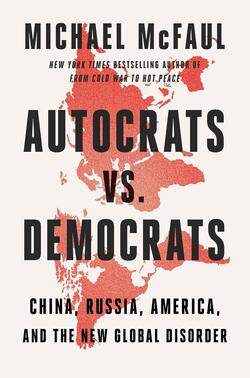
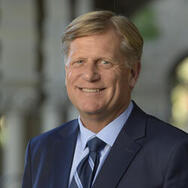
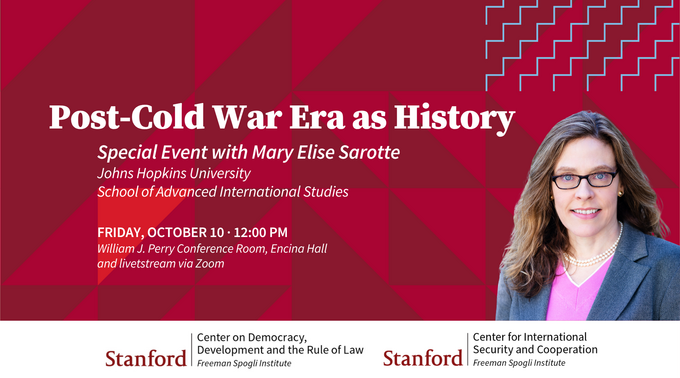


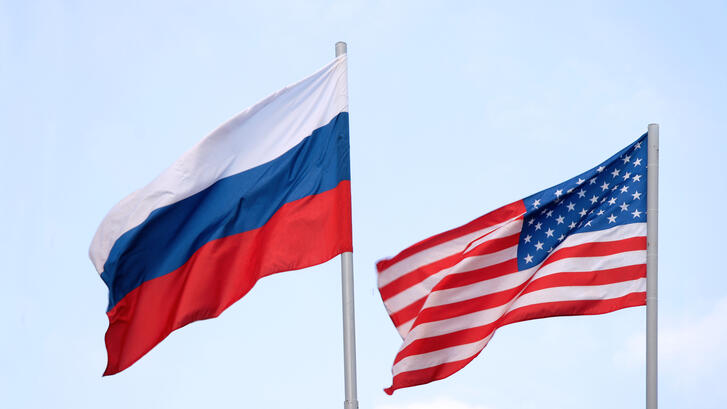
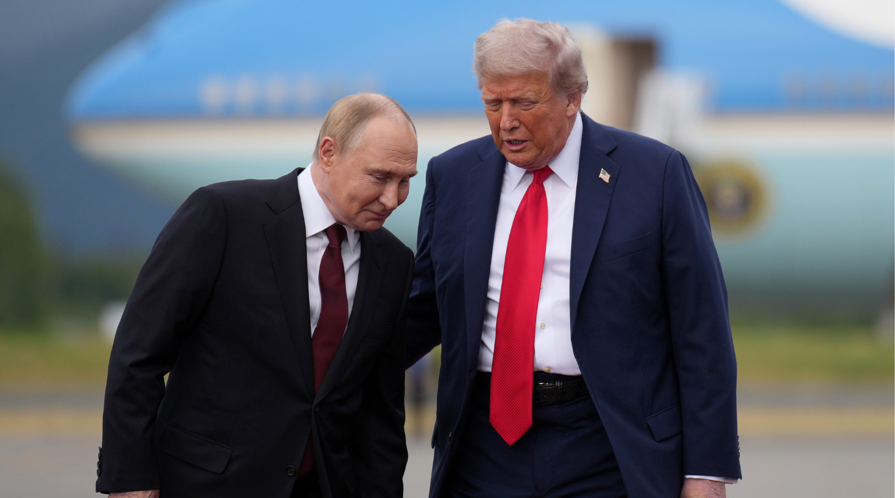









![[Left to right]: Michael McFaul, Marshall Burke, Steven Pifer, Oriana Skylar Mastro, Didi Kuo, and Amichai Magen on stage.](https://fsi9-prod.s3.us-west-1.amazonaws.com/s3fs-public/styles/895x498/public/2024-10/fsi_reunion_2024_panel_hero.png?h=c4d9845d&itok=qQV3guUp)